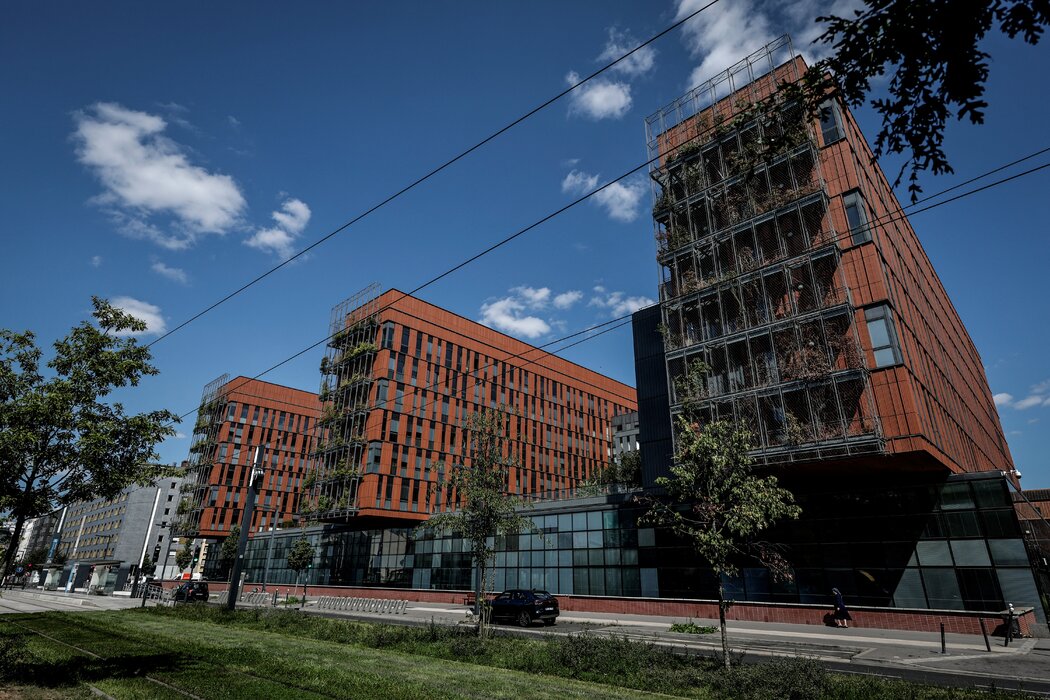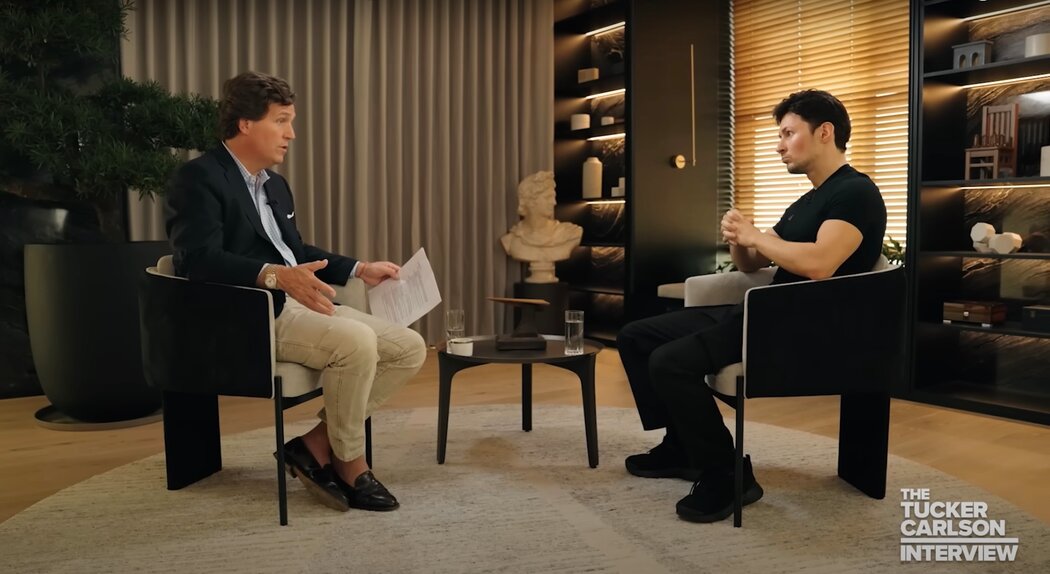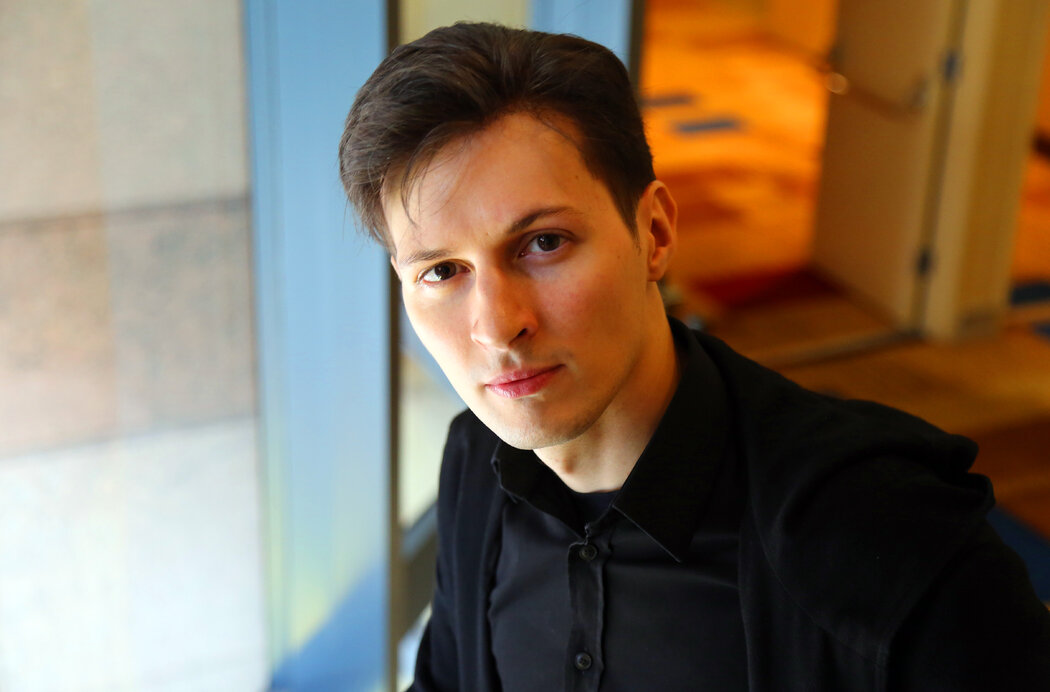Over a decade ago, when Russia urged Pavel Durov to shut down opposition politicians' pages on his Facebook-like website, the tech entrepreneur posted a brazen photo online of a dog in a hoodie sticking out its tongue.
He wrote unapologetically, "This is the formal response to the intelligence agencies' demands to block the group."
13 years later, Durov's anti-establishment tendencies seem to have brought him a new round of trouble with the authorities. He was arrested in France, part of an investigation into criminal activities on Telegram, the online communication tool he founded in 2013, which has grown into a global platform known for its lack of user surveillance.
French President Macron mentioned Durov's arrest, stating that France is "firmly committed to freedom of speech," but, "in a rule-of-law state, the protection of freedom should be within the framework of the law, whether on social media or in real life."
Durov's arrest has caused a stir among those concerned with free speech and government censorship, making him a folk hero, especially given the increasing global scrutiny of online content. Owners of X, Elon Musk, and American intelligence contractor Edward Snowden, who fled to Russia after leaking classified information, are among Durov's defenders. The "#FreePavel" hashtag has spread on X, intensifying the debate over the blurry intersection of technology and free speech.
In a statement from Telegram, it stated compliance with EU laws. The company said, "It is absurd to claim that a platform or its owner should be responsible for the misuse it undergoes."
Long-term, Durov's anti-authoritarian spirit and commitment to free speech have sustained Telegram. As a devout tech optimist, the 39-year-old excels at mocking authority online. He firmly believes that governments should not censor what people say on the internet.
This guiding principle has helped make Telegram a favorite chat app among Russians, Iranians, and others living under authoritarian governments. However, Durov's laissez-faire management style has also attracted terrorists, extremists, gun traffickers, scammers, and drug dealers.
He said that the principle of secrecy takes precedence over tighter regulation of online speech. "Ultimately, privacy is more important than our fear of bad things happening, such as terrorism," he wrote in 2015.
"To achieve true freedom, you should be ready to take all the risks for freedom," Durov wrote on Instagram in 2018, accompanied by a photo of him riding a horse in the desert.
On Durov's personal social media accounts, his posts showcase an unconventional lifestyle. In a recent post, he claimed to have donated sperm in 12 countries over the past 15 years, resulting in over 100 biological children. He shared this information to help destigmatize the topic, stating his initial donation was to assist a friend struggling with infertility, and he plans to make his DNA "open source."

But Durov's primary focus remains on Telegram. In 2014, under increasing scrutiny from Russian security services, he left Russia and eventually fled to Dubai, where he said the government does not interfere with his business. Since then, he has been battling with Apple and many governments over content control issues. According to VPN software provider Surfshark, Telegram faces temporary or permanent bans in 31 countries.
In an April interview with Tucker Carlson, Durov accused the FBI of trying to hire a Telegram programmer to allow the U.S. government access to user data. This was his first interview in years, where he sat in front of a bookshelf with two chair sculptures, one covered in knives and the other in phalluses—a joke apparently related to Russian prisons.
The FBI did not respond to a request for comment.
Durov was born in the Soviet Union in 1984 and moved with his family to northern Italy at the age of four. His brother Nikolai, a math prodigy, performed solving cubic equations on Italian TV and later became Telegram's chief technology officer. After the Soviet Union collapsed in the early 1990s, the Durov family returned to Saint Petersburg, where Pavel and Nikolai participated in youth math competitions and programmed on an IBM computer they brought from Italy.
While attending university in Saint Petersburg, a friend showed Durov an early version of Facebook created by Mark Zuckerberg. Inspired, Durov began creating his own version. He founded Vkontakte in 2006, which quickly dominated Russia. It also caught the attention of the Kremlin, which requested information about Vkontakte users.
Durov said that after Russian security forces appeared at his apartment around 2011, he began building Telegram, hoping it would offer a more secure means of communication. While still operating Vkontakte, Durov said the government eventually gave him an ultimatum: hand over Vkontakte user data or lose control of the company and be forced to leave Russia.
"I chose the latter," Durov said.
Since breaking with Russia, Durov has always been surrounded by Telegram engineers. Former employees say he moves every few months. Although Dubai is officially Telegram's headquarters, he has lived in Barcelona, Bali, Berlin, Helsinki, and San Francisco. Former employees say he remains a serious engineering leader, often engrossed in the app's features, neglecting to make money or curb criminal activities.
Telegram states that Durov holds citizenship in the UAE and France. Although he travels on private planes, he says he always avoids shopping, using the hundreds of millions of dollars and bitcoins in the bank to ensure his freedom. Bloomberg estimates his net worth to be over $9 billion.
"I'd rather make decisions that impact how people communicate than choose the color of the seats in my house," he said in the Carlson interview.

Telegram currently has nearly a billion users worldwide, surpassing X. Telegram is an instant messaging app similar to WhatsApp or iMessage. But it also has groups of up to 200,000 users and broadcasting capabilities, helping individuals and groups share views with a broader audience. This service is particularly popular in Ukraine, Brazil, Indonesia, India, and Russia.
As Telegram has rapidly grown, Durov's lenient content regulation has drawn criticism. Policymakers, law enforcement, and security researchers say the app has become a haven for misinformation, terrorism propaganda, far-right extremism, drug trafficking, child pornography, and weapon sales.
Over the years, Telegram has removed some content, such as child sexual abuse or posts explicitly aimed at inciting violence. But authorities often express dissatisfaction with Durov's non-cooperation. There are also concerns about Telegram's ties with the Russian government, which lifted its ban on the service in 2020. Security experts also warn that the tool does not use the same encryption standards as apps like Signal and is not as secure as the company claims.
French prosecutors stated that Durov's detention is part of an investigation that began last month, involving crimes such as child pornography, fraud, drug trafficking, and money laundering. French authorities noted the lack of cooperation with law enforcement from Telegram, and Durov remains detained.










